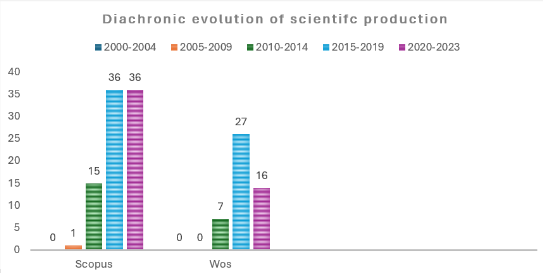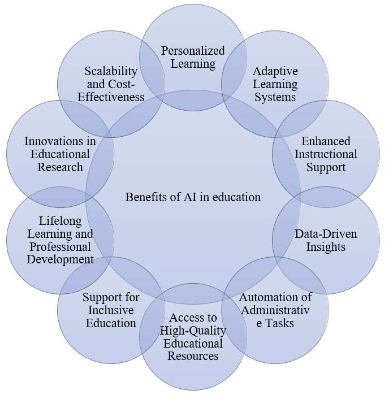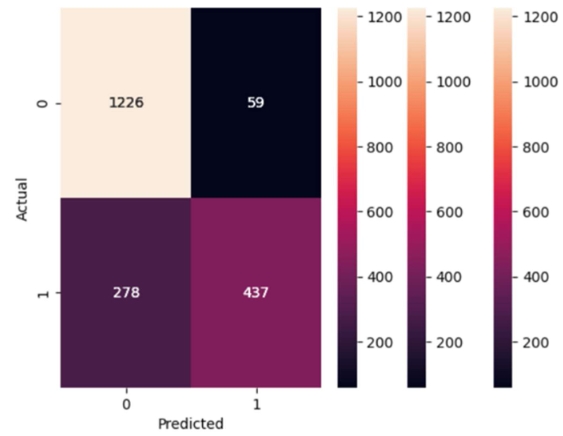Humanization of society through integration and inclusive education: Challenges and prospects for individuals with visual impairments in Ukraine
Abstract
The new concept of humanizing society, founded on the priority of personality development through socialization processes, opens new perspectives for citizens with visual impairments in Ukrainian society. The article analyzes the issue of social adaptation of this category of people through inclusive education, which encompasses preschool, general, and vocational training. The historical, philosophical, psychological, and methodological aspects of implementing an integrative approach to inclusive education for visually impaired individuals are considered. The study emphasizes the importance of the “principle of equal opportunities” in education for children and youth with functional limitations, focusing on the integration of such individuals into the general educational process. It underscores the need for a societal attitude shift towards children with special educational needs and the support for the idea of inclusion at the state level, involving school administrators, educational staff, parents, and other participants in the educational process. The psychological and pedagogical support of children with visual impairments within the context of inclusive education, playing a key role in the development of Ukraine’s modern educational system, is distinguished by its multidisciplinary approach. This support ensures the preparation and psychological readiness of all participants in the educational process for cooperation with children with health issues and includes the prevention and correction of secondary developmental deviations in such children. Special attention is paid to the role of social and pedagogical work in the development of a child with disabilities in accordance with the general patterns of child development, considering secondary symptoms related to abnormal social development. The article investigates the main approaches to implementing inclusive education in the educational space of Ukraine. The author examines the normative legal acts concerning the integration of people with special needs and their impact on the development of democracy. Additionally, an overview of the experience of organizing education for people with visual impairments in Ukraine and abroad is provided. The authors of the article highlight the need for support of regional rehabilitation and social protection programs for people with visual impairments, the creation of scientific-methodological resource centers for inclusive education, and the integration of such children into general education institutions. The conclusions of the study underline that addressing issues of accessibility, inclusion, and humanization of societal relations towards visually impaired individuals will contribute to their successful socialization and professional training, reflecting modern approaches to education and vocational training for blind and visually impaired individuals. The importance and prospects of implementing inclusive education in Ukraine’s educational space are demonstrated and significant for educators, lecturers, and students of pedagogical and technical universities, as well as education and science professionals.
References
[1]Verkhovna Rada of Ukraine Law of Ukraine “On Employment” (Ukrainian). Available online: http://zakon2.rada.gov.ua/laws/show/803- (accessed on 25 July 2024).
[2]Kravchenko NV, Alyeksyeyeva HM, Gorbatyuk LV. Curriculum Optimization by the Criteria of Maximizing Professional Value and the Connection Coefficient of Educational Elements, Using Software Tools. In: ICTERI 2018: 14th International conference on ict in education, research, and industrial applications; 14–17 May 2018. Kyiv, Ukraine.
[3]Ovsiannikov O, Alieksieieva H. The computer environment of scientific research work of students of engineering and pedagogical specialties of the computer profile as a design object (Ukrainian). Molod i rynok, 2019; 9(176). doi: 10.32843/2663-6085-2019-14-2-39
[4]Gura V, Nestorenko T, Makarenko T. Doslidzhennia katehorii “osvitnia posluha”: mizhdystsyplinarnyi pidkhid. Series: Pedagogical Sciences. 2022; 2: 91-104. doi: 10.31494/2412-9208-2022-1-2-91-104
[5]Havrylenko N. Conceptual approaches to creating a regional model of inclusive education “School”–“College”–“University”. Inkliuzyvna osvita: ideia, stratehiia, rezultat; 2022. p. 63.
[6]Hurenko O, Tsybuliak N, Mytsyk H, et al. Organizational adaptation for inclusive education in universities amidst war (Special issue). Journal of Governance & Regulation. 2024; 13(2): 339–353. doi: 10.22495/jgrv13i2siart10
[7]Lopatina H, Tsybuliak N, Popova A, et al. Inclusive education in higher education institution: Are Ukrainian faculty members’ ready for it? Research in Education. 2024; 118(1): 49-72. doi: 10.1177/00345237231207721
[8]Alieksieieva HM. Formation of readiness of future social educators to use computer technologies in professional activity (Ukrainian). Monohrafiya. Berdyansʹk: BDPU; 2014.
[9]Alferova TS, Potehina OA. Fundamentals of Rehabilitation (Ukrainian). Book 1. Tolyatti: Renaissance Academy; 1995.
[10]Alieksieieva HM. Victorious information-communal technologies in the process of professional training of students of pedagogical universities (Ukrainian). Aktualʹni pytannya pryrodnycho-matematychnoyi osvity. Sumy, Ukrayina: VVP “Mriya”; 2014. pp. 184-191.
[11]Alieksieieva HM, Babich PM. Using the Arduino platform for professional training of future engineer-pedagogues (Ukrainian). Fizyko-matematychna osvita, 2018; 4(18): 12-17. doi: 10.31110/2413-1571-2018-018-4-002
[12]Tulashvili I. Mathematical approaches of creating to educational content formation in the professional system computer training of blind people [Electronic resource]. The central European journal of social sciences and humanities: Edukacja - Technika – Informatyka, 2015; 6 (4): 136-140.
[13]Lupart D, Webber C. School Reform in Canada: Transition from Separate Systems to Inclusive Schools (Ukrainian). In: Essaiopaiiiu Essaiiiop, Sapasia; 2002. pp. 7-52.
[14]Bondar V. Education of Children with Special Needs: Explorations and Perspectives. Surdopedagogy (Ukrainian).
[15]Salamanca Declaration Framework for Action on Special Needs Education. In: the World Conference on Special Needs Education: Access and Quality, Salamanca, Spain (Ukrainian). 2000.
[16]Guide for Parents of Children with Special Educational Needs: Educational and Methodological Manual in 9 Books (Ukrainian). In: the “Inclusive Education” Series. Kyiv; 2010.
[17]Kolupaeva LA, Budyak LV. Implementing Inclusive Education during the Reform Process in Ukraine (Ukrainian). In: Proceedings of the X International Scientific-Practical Conference “Inclusive Education: Realities and Perspectives”. Kyiv; 2009. p. 272.
[18]Danilavichyutye EA. Teaching Strategies in an Inclusive Educational Institution: Educational and Methodological Guide (Ukrainian). Kyiv; 2012.
[19]Burchak OK. Education for the Blind: Its Future (Ukrainian). Social Partnership, 2005; 10: 26-27.
[20]Inclusive Education: Supporting Diversity in the Classroom: A Practical Guide (Ukrainian). Guide for Parents. Compiled by the non-governmental organization “Living in the Community” (Manitoba, Canada). Kyiv: Palyvoda A.V.; 2012.
[21]Disability and Society: A Training Manual. 2012 (Ukrainian). Available online: https://issuu.com/napd/docs/invalidnist_ta_suspilstvo (accessed on 25 July 2024).
[22]Gritsenok LI, Obukhivska AG, Panok VG, et al. Psychological Service and Psychomedical-Pedagogical Consultations in the Education System of Ukraine: Development Indicators for the 2004-2005 Academic Year (Ukrainian). Kyiv: Nika-Cente; 2005.
[23]Stasiuk LP. Inclusive Education in General Education Schools: An Integrative Approach to Inclusive Education for Individuals with Visual Impairments (Ukrainian). In: Tulashvili YJ (editor). Monograph. Lutsk: PP Ivanyuk V.P.; 2019. pp. 178-193.
[24]Social-Pedagogical Work with Children and Youth with Functional Limitations (Ukrainian). In: Kapska A (editor). Social Pedagogy: A Textbook, 3rd ed. Kyiv; 2006. pp. 329-368.
[25]Havrylenko NV. Interaction of international and national law norms through the prism of globalization and integration processes (Ukrainian). Available online: https://ndipzir.org.ua/wp-content/uploads/2023/01/conf_09.11.2022.pdf. (accessed on 25 July 2024).
[26]Hurenko OI, Alekseeva HM, Lopatina HO, Kravchenko NV. Use of computer typhlotecnologies and typhlodevices in inclusive educational space of university. Information Technologies and Learning Tools, 2017; 61(5): 61-75. doi: 10.33407/ITLT.V61I5.1782
[27]Bayda LY, Krasukova-Enns OV, Burov SY, et al. Disability and Society: Educational and Methodological Guide (Ukrainian). Kyiv; 2012.
[28]Budyak LV. Inclusive Education in a Rural General Education Institution (Ukrainian). Cherkasy; 2010.
[29]Grebenyuk TM. Studying the Problem of Socio-Psychological Adaptation of Visually Impaired People in Student Integrated Groups (Ukrainian). In: Information Technologies in the Social and Labor Rehabilitation of People with Disabilities: Proceedings of the International Seminar. Kyiv: VO UFZ-BF “Vizavi.”; 2001. pp. 76-79.
Copyright (c) 2024 Yurii Tulashvili

This work is licensed under a Creative Commons Attribution 4.0 International License.









